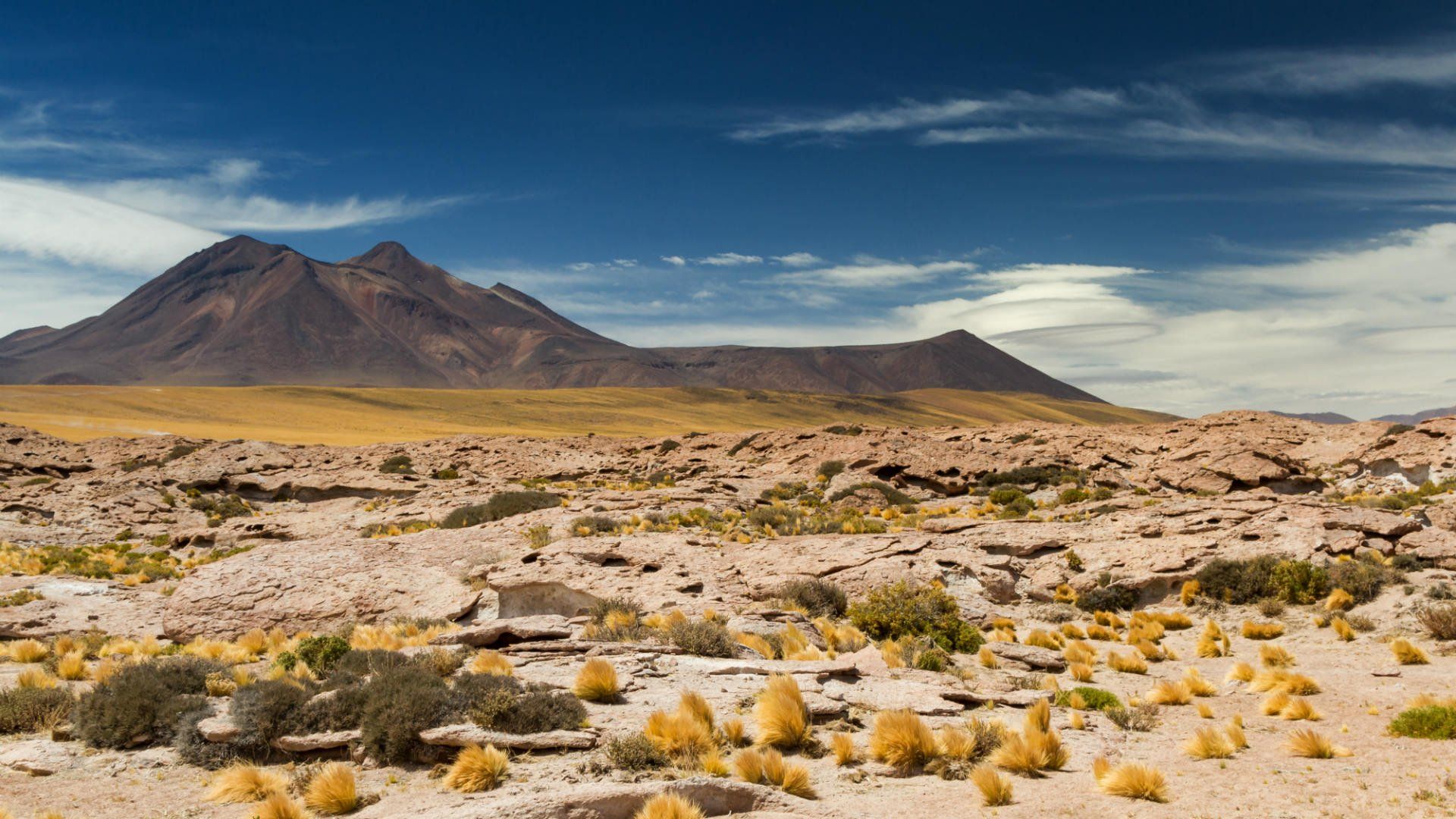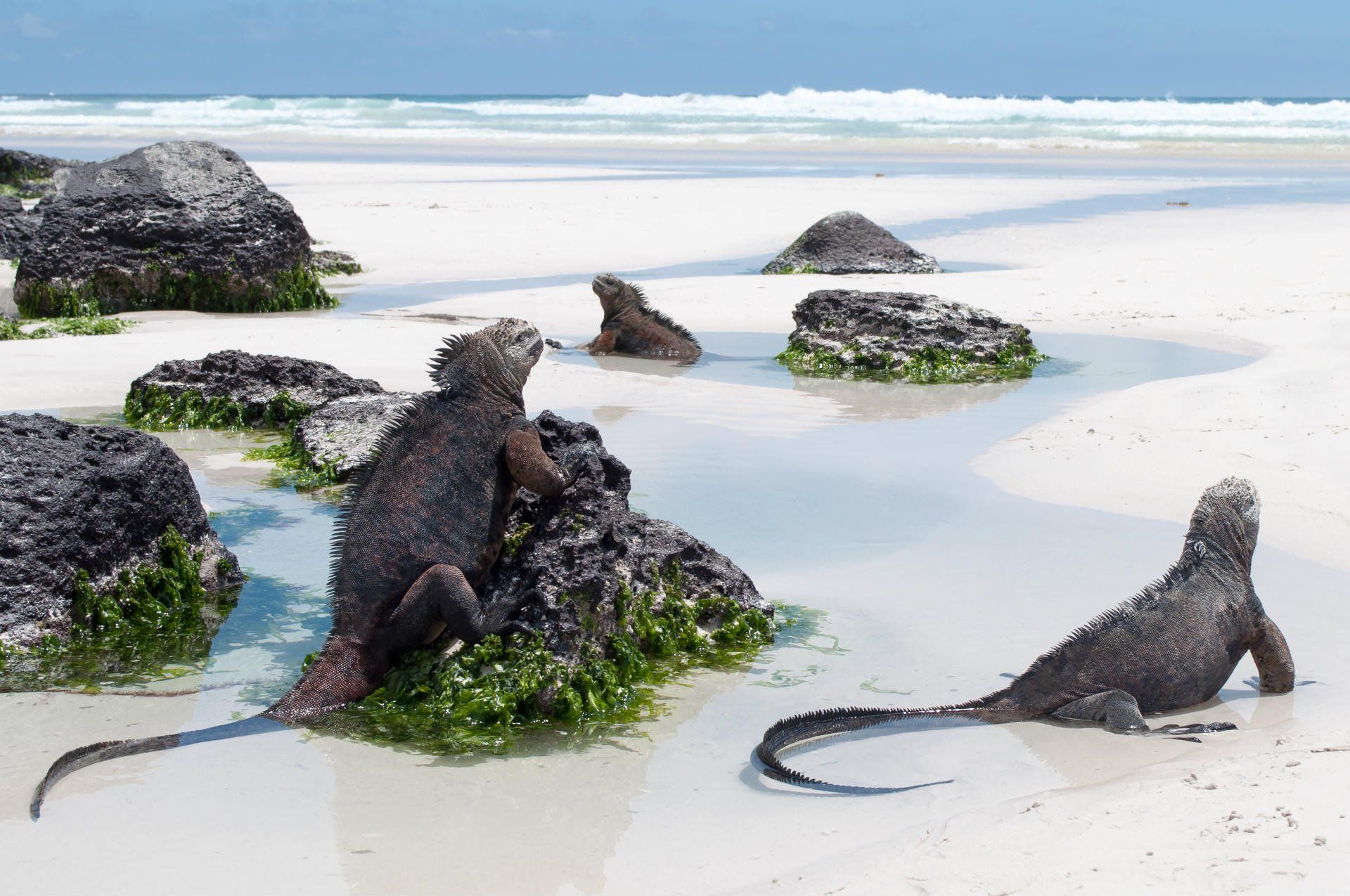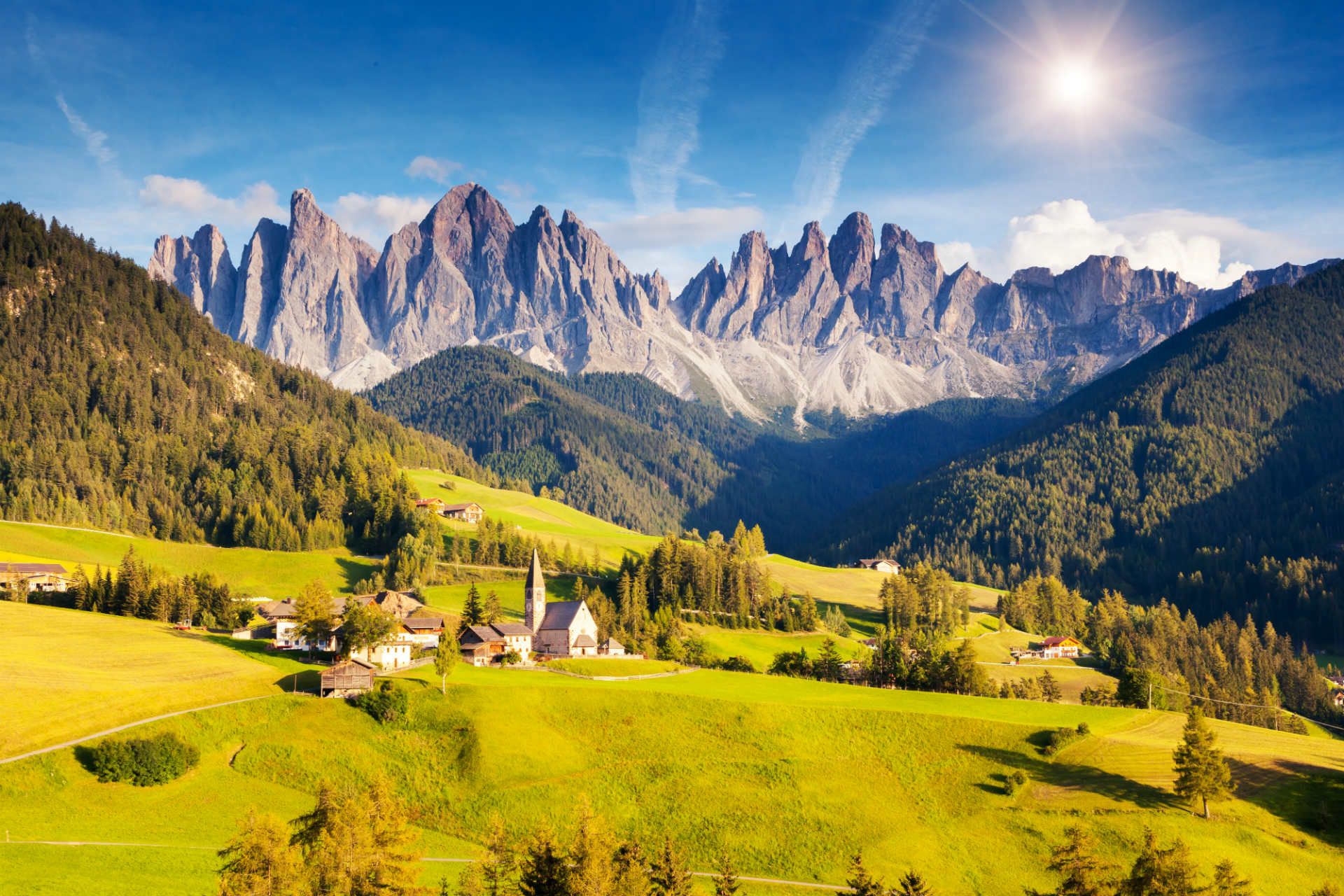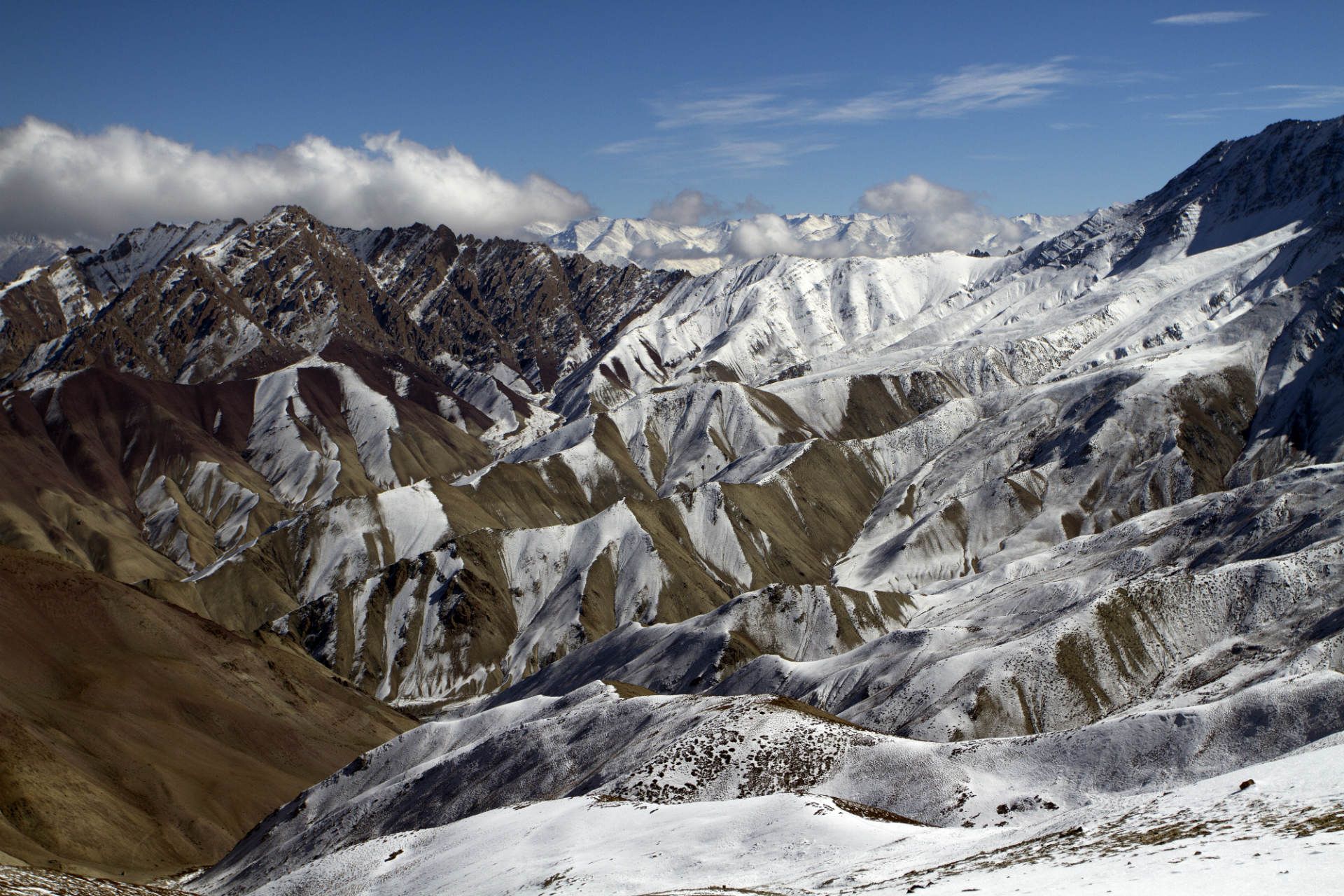Planning your own trip? Prepare for your trip
Use Rough Guides' trusted partners for great rates
Book your individual trip, stress-free with local travel experts
The world has never been more accessible than it is today, so your next big adventure is easily within reach. If you’re ready to climb craggy peaks, dodge polar bears or get deep into the jungle, these intrepid destinations should be at the top of your list.
For an out-of-this-world adventure, look no further than the Atacama Desert in western Chile. With jagged ravines, billowing geysers and arid salt flats, there’s an extra-terrestrial quality to its landscapes that NASA once harnessed to field test Martian rovers. As one of the driest places on the planet, there’s very little in the way of human development surrounding its barren plains. That said, the resulting lack of light pollution makes the sky perfect for stargazing.

© Circumnavigation/Shutterstock
Deep in the jungle-swathed mountains of Sierra Nevada lies La Ciudad Perdida, Colombia’s fabled ruined city dubbed “the new Machu Picchu”. Built in 800AD by the indigenous Tayrona tribes, it was abandoned following a run-in with Spanish conquistadors and largely forgotten, until looters rediscovered it in the 1970s. You’ll need to make like Indiana Jones if you want to see it for yourself, as the high-altitude trek up involves a three-day trudge through humid cloudforest.
The Gobi Steppe was once home to some of the largest herds of horses the world has ever seen, and even today there’s barely a trace of human activity. Nomads live here in felt tents called gers, and you can channel your inner Genghis Khan with a ride on a Mongol horse and a hearty bowl of airag (fermented mare’s milk). Head to Ulaanbaatar in July for the Naadam festival, where locals compete in macho sports like wrestling and horseracing.
Set atop volcanic fields, the landscapes of the Tongariro National Park almost seem alive. Vents hiss with gas, scree slopes shift under tumbling rocks and geothermal springs emit thick wafts of sulphur – altogether, the effect is otherworldly. The park is home to New Zealand’s top day-trek, the Tongariro Alpine Crossing, which makes for a great adventure. You can hike past emerald lakes and steaming craters before reaching Mount Ngauruhoe, which featured as Mount Doom in The Lord of the Rings.

Svalbard is one of Europe’s last great wildernesses, an untamed Norwegian archipelago 650 miles from the North Pole, where polar bears outnumber people and stocky reindeer regularly trundle into town. The primary settlement, Longyearbyen, sits high above the Arctic Circle amid rocky crags and ice-clogged fjords. It spends several months of the year in the eerie darkness of the polar night, which is perpetual during this time save for the ethereal glow of the northern lights.
Papua New Guinea has stunning snow-capped mountains and jungles teeming with birds of paradise, yet it’s still largely undiscovered. One of the highlights here is attending a sing-sing, when local tribes don colourful headdresses in a celebration. Travelling here is tricky due to the lack of infrastructure, so it’s best to take an experienced guide – many tribes speak their own languages and have only recently been in touch with the outside world.

© Michal Knitl/Shutterstock
Beside Lake Tanganyika in western Tanzania, Mahale Mountains National Park is arguably the best place to track Africa’s last remaining wild chimpanzees. There are around a thousand living here in the lowland forests, including the habituated Mimikere or ‘M’ group. But reaching them is no easy task: the journey involves a steep and strenuous climb through dense vegetation. As Tanzania’s most remote national park, Mahale Mountains has no roads and is only reachable by boat or chartered flight.
For years, the jungle-clad Myeik Archipelago in southern Myanmar was completely off-limits to outsiders, and even today only tour boats are permitted. The unspoiled group of around 800 islands is home to the Moken sea gypsies, who cruise the tropical bay in kabang boats and free dive for pearl oysters and sea slugs. It’s unclear how long the islands will remain untouched, with investors lining up to kick-start development. For now, getting here is still very much an adventure.

© ronemmons/Shutterstock
While historic tales of polar exploration are fraught with shipwrecks and disasters, Antarctica is rapidly emerging as a popular adventure travel destination. The native wildlife is one of its principal draws – with seals and macaroni penguins living on land and killer whales patrolling the deep – as is the chance to do the Polar Plunge, where you dive into freezing waves amid gigantic, tabular icebergs. Naturally, it’s not for the faint-hearted.

© Song_about_summer/Shutterstock
Once considered a forbidding archipelago, the Galapágos Islands only came to the fore when Charles Darwin published The Origin of Species. The unique wildlife here has evolved to be fearless, stemming from the lack of predators on the volcanic isles, so you can easily snorkel with marine iguanas or share the rocky outcrops with groups of giant tortoises. The islands have recently become more popular, but strict controls on tourists mean the human footprint is kept to a minimum.
Discover the best time to visit Galapagos, the best time to visit Ecuador and explore our Galapagos itinerary.

© Discover Marco/Shutterstock
The Dolomites in the northern Italian Alps have one of the highest concentrations of via ferrata in the world, giving hikers access to the craggy peaks without the need for high-tech equipment. The steel cables, ladders and suspended bridges are free to use, though you’ll need a good head for heights – many will take you along exposed mountainsides past sheer drops. They vary in difficulty but, at the very least, you should expect a tough climb lasting several hours.

With stifling heat, sun-baked landscapes and crocodile-infested waterways, the Northern Territory is Australia at its rawest. The waterfront city of Darwin is the gateway to the Outback, and from here you can adventure deep into the Red Centre in search of one of the world’s most remote natural wonders – Uluru, the iconic six hundred-million-year-old monolith. You can hit the dusty russet trails in a 4x4 along the way, stopping to admire Aboriginal rock art or the odd passing cassowary.

Snow leopards may be notoriously tricky to spot in the wild, but Hemis National Park is rapidly establishing itself as a big cat hotspot. Join a guided tour and you can clamber across punishing terrain at dizzyingly high altitudes, pitching camp along the route and using binoculars to search for tracks in the snow. The best time to go is during winter, when the leopards roam lower to the ground – though bear in mind that temperatures hover around -10.

© Mogens Trolle/Shutterstock
Tetchy and unpredictable, the communist state of North Korea only recently opened its doors to visitors with its own unique brand of totalitarian tourism. Currently it’s only possible to travel by bus with two state-approved guides, who will lead a sugarcoated tour and do their best to prevent you from chatting to locals. Even so, some intrepid travellers can’t resist getting an insight into the world’s most secretive country – however bizarre and unsettling it may be.
written by
Georgia Stephens
updated 21.05.2024
Use Rough Guides' trusted partners for great rates
Arrange your trip, hassle-free, with local travel experts
Arrange your trip with local travel experts